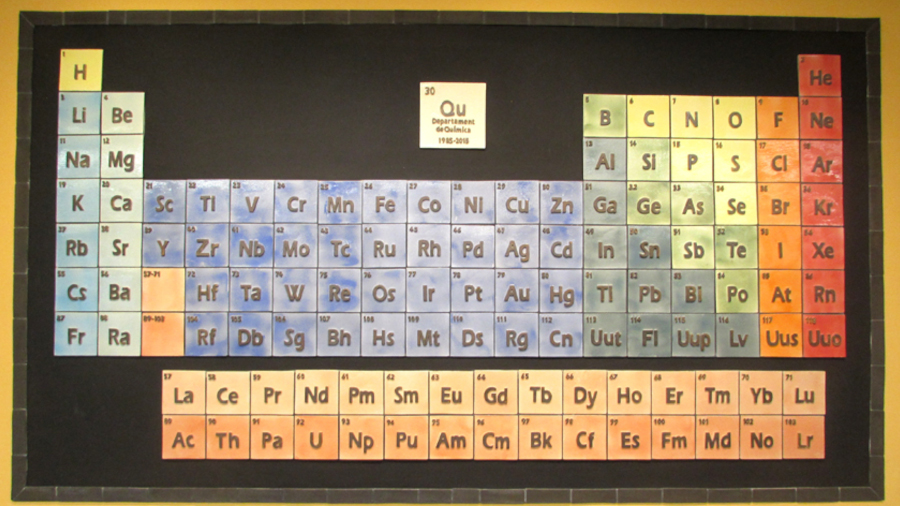Researchers from the Department of Chemistry of the UAB will coordinate a multidisciplinary team over the next three years to develop a device capable of electrochemically converting carbon dioxide (CO2) and nitrogen (N2) into urea using renewable energy, thereby promoting more sustainable and less energy-intensive fertiliser production.

The methods commonly used by the agrochemical industry to produce synthetic fertilizers are energy-intensive and have high environmental and socio-economic impacts. In the European transition to a more sustainable and cost-effective agricultural model, urea has become the most popular nitrogenous fertilizer, with a global demand of nearly 180-200 million tonnes per year. However, its use has significant drawbacks related to storage, operational and economic issues.
In this context, the CONFETI project will validate, at laboratory scale, an innovative, self-sustaining technology for the photoelectrochemical capture and conversion of carbon dioxide (CO2) and nitrogen compounds (N2) directly from air or flue gas into urea. The system promotes the circular economy by recycling and converting nitrate (NO3-) not consumed by the plant into ammonia using photocatalytic technologies that work with sunlight.
The challenge: Sustainable production of urea
The CONFETI system will be powered by renewable energy sources through a combination of soil microbial fuel cells (SMFC) and solar panels. The final proof-of-concept system for urea production will result from the combination of three pocket-scale reactors: 1) an electrochemical reactor for the capture, storage and conversion of CO2 and N2 to urea, 2) a soil fuel cell capable of generating energy from the microorganisms present in the roots of plants to perform the electrochemical reactions, and 3) a photochemical reactor for the reduction of nitrate (NO3-) to ammonia using photocatalytic technology with sunlight.
The assembly of the 3 reactors in a single self-sustaining system will allow the production of the fertilizer in situ, with the added value of minimizing unwanted pollution episodes associated with fertilizer by-products (i.e. NO3-). The energy for the photoelectrochemical catalysis will also be generated in situ from renewable energy sources. The electricity needed to power the electro- and photocatalytic devices will be generated on-site from renewable sources.
The consortium
The implementation of this concept and the design of the final system will be possible thanks to a multidisciplinary consortium led by the Autonomous University of Barcelona (UAB) and complemented by other Spanish partners: The Institute of Microelectronics of Barcelona (IMB-CNM-CSIC), the Research Centre for Energy, Environment and Technology (CIEMAT) and the biotech company BIOO; the University of Antwerp (UANTWERPEN), from Belgium; the University of Pisa (uniPi), from Italy; the French National Centre for Scientific Research (CNRS) and the University Toulouse III - Paul Sabatier (UPS), from France; and an associated partner from the USA: Iowa State University (IOWA).
The team includes experts in CO2/N capture and activation (UAB, CNRS-UPS), catalysts (IOWA, UAB), bacterial immobilisation systems (IMB-CNM-CSIC), electronic circuit engineering (uniPi), electrochemical processes (UAB, UANTWERPEN) and solar photochemistry (CIEMAT), as well as BIOO, an SME specialised in renewable energies and soil microbial fuel cells. As a result of this joint effort between producers and users, technology providers and customers, researchers and companies, CONFETI will achieve an unprecedented and radically new technology that will lead to the final self-powered fertilisation system.
Gonzalo Guirado, researcher from UAB's Department of Chemistry and CONFETI's project coordinator, says: "We expect to achieve a triple social impact on several relevant sectors. First, on the environment and human health, with a reduction in environmental CO2 concentrations associated with its capture and removal from the environment. Second, the agricultural community will be able to fertilize crops in a simpler, more sustainable and less costly manner. Thirdly, the CONFETI technology will improve the production routes used in the agrochemical industry, particularly in the production of urea and ammonia production".
With a grant of nearly €4 million, the CONFETI team will work over the next three years to enable a more sustainable and less energy-intensive production of fertilisers without critical raw materials and with net-zero chemical reagents and carbon footprint, supporting current EU policies and global challenges such as the EU Green Deal, the EU Chemicals Strategy for Sustainability, the Zero Pollution Action Plan and the Taxonomy Regulation for Sustainable Activities, among others.
Maximizing innovation on CO2 and nitrogen management and valorisation
CONFETI, together with Mi-Hy, HYDROCOW, ICONIC, ECOMO, SUPERVAL, DAM4CO2 and MINICOR, is one of the 8 EU research projects selected for the EIC portfolio on CO2 and N management and valorisation, which aims to build a common roadmap to identify and accelerate the development of the most promising EU technologies in this field to address the challenges of climate change, global warming and water/soil pollution in line with the European Green Deal objectives.
The projects in the portfolio have been funded under the "Carbon dioxide and nitrogen management and valorisation" challenge in the call for proposals HORIZON-EIC-2022-PATHFINDERCHALLENGES-01-01. All projects started between 1 September 2023 and 1 January 2024 and will run for up to 60 months with a total approved budget of around €29 million.






